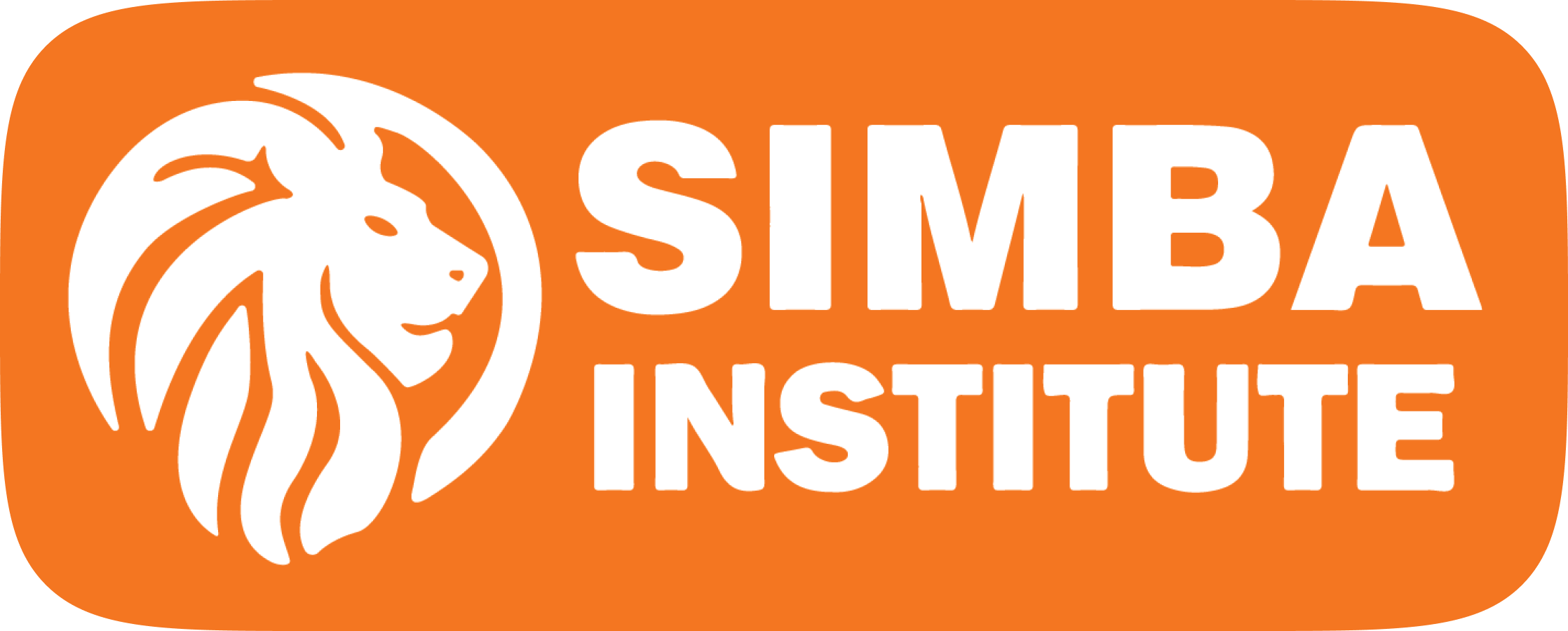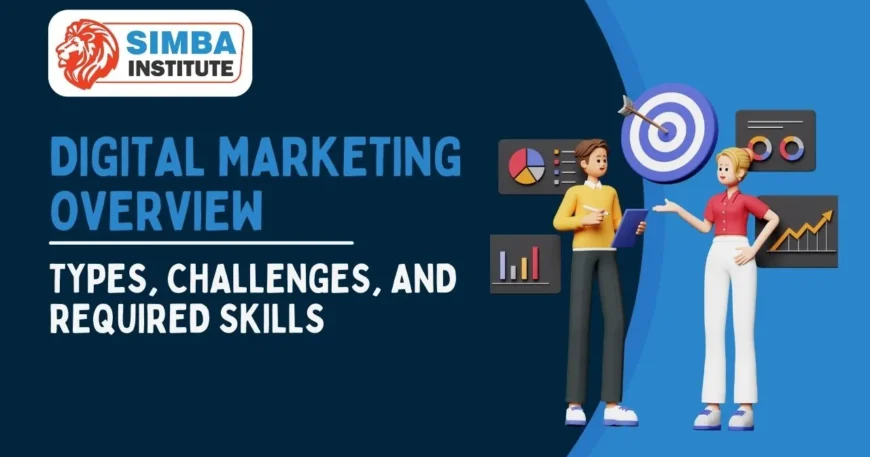Digital marketing is important in the modern world. It’s the way businesses use the internet to inform people about their goods and services. You see Digital marketing is present on all internet platforms, including emails, social media, and websites. Because so many individuals spend so much time on social media and the internet, businesses use it. By examining data, they can also utilise it to determine what individuals like and dislike.
Businesses may reach more customers and make more sales with the aid of digital
marketing. It’s constantly evolving due to the constant introduction of new concepts and technologies. Thus, for businesses to succeed, you must constantly learn and attempt new things.
So, if you’re the kind who:
- Interest in technology and its impact on communication and business.
- Passion for creativity and crafting compelling messages to capture the audience’s attention.
- Fascination with social media platforms and how they influence consumer behaviour.
- Curiosity about how people interact and engage with content online.
- Enthusiasm for entrepreneurship and finding innovative ways to promote products or services.
- Desire to understand data and analytics to measure the success of marketing efforts.
- Eagerness to explore diverse marketing channels and strategies to reach target audiences effectively.
- Interest in staying updated with the latest trends and developments in the digital world.
The role of a digital marketing specialist encompasses various responsibilities aimed at creating and implementing effective digital marketing strategies. Here are the key roles they typically fulfil:
- Strategy Development: Developing comprehensive digital marketing strategies aligned with business goals and target audience needs.
- Content Creation: Generating engaging and relevant content for various digital channels, including websites, social media, emails, blogs, and advertisements.
- Social Media Management: Managing social media accounts, creating content calendars, engaging with followers, and analysing social media metrics to optimise performance.
- Search Engine Optimization (SEO): Optimising website content and structure to improve search engine rankings and increase organic traffic.
- Paid Advertising: Planning, executing, and optimising paid advertising campaigns on platforms like Google Ads, Facebook Ads, and LinkedIn Ads to reach target audiences and achieve specific objectives.
- Email Marketing: Developing email marketing campaigns, creating compelling email content, and managing email lists to nurture leads and drive conversions.
- Analytics and Reporting: Monitoring key performance indicators (KPIs), analysing data from various digital marketing channels, and preparing reports to track campaign performance and make data-driven decisions.
- Website Management: Managing website updates, ensuring website functionality, and optimising user experience to drive conversions and achieve business objectives.
- Marketing Automation: Implementing marketing automation tools and workflows to streamline processes, personalise communication, and improve efficiency.
- Digital Advertising Campaign Management: Overseeing the planning, execution, and optimization of digital advertising campaigns across multiple platforms to maximise ROI and achieve marketing objectives.
- Conversion Rate Optimization (CRO): Analysing website traffic and user behaviour to identify opportunities for improving conversion rates and optimising the user journey.
- Stay Updated: Keeping abreast of the latest trends, technologies, and best practices in digital marketing to ensure the organisation remains competitive in the digital landscape.
Overall, a digital marketing specialist plays a crucial role in driving online visibility, engagement, and conversions for businesses through the strategic use of digital marketing tactics and channels.
Black side of Digital Marketing:
While digital marketing offers numerous advantages for promoting your blog, it also comes with some drawbacks. One significant disadvantage is the high level of competition in the digital space. With millions of blogs vying for attention online, standing out can be challenging.
Additionally, digital marketing tactics often require continuous adaptation due to frequent algorithm changes and evolving consumer preferences, which can be time-consuming and resource-intensive.
Types of digital marketing jobs:
There are various types of digital marketing jobs available in today’s workforce, each focusing on different aspects of online promotion and engagement. Here are some common types of digital marketing jobs:
- Digital Marketing Manager: ₹600,000 – ₹1,200,000 per year.
- Social Media Manager: ₹400,000 – ₹800,000 per year.
- Content Marketer: ₹300,000 – ₹700,000 per year.
- SEO Specialist: ₹300,000 – ₹800,000 per year.
- PPC Specialist: ₹400,000 – ₹800,000 per year.
- Email Marketing Manager: ₹400,000 – ₹800,000 per year.
- Analytics Manager: ₹500,000 – ₹1,000,000 per year.
- Conversion Rate Optimization (CRO) Specialist: ₹500,000 – ₹900,000 per year.
- Digital Marketing Coordinator: ₹300,000 – ₹600,000 per year.
- Inbound Marketing Manager: ₹500,000 – ₹1,000,000 per year.
- Affiliate Marketing Manager: ₹400,000 – ₹800,000 per year.
- Brand Manager: ₹500,000 – ₹1,200,000 per year.
How to stay up-to-date with the latest digital marketing techniques?
- Follow Industry Leaders:
- Attend Webinars and Conferences:
- Join Online Communities
- Continuous Learning
- Experimentation and Analysis
- Follow Industry News and Updates:
- Network with Peers
What is a digital marketing strategy ?
A digital marketing strategy is like a blueprint for how you’ll use digital channels to achieve your business objectives. It involves setting specific goals, understanding your target audience, selecting the most effective digital channels to reach them, and continuously analysing data to optimise your approach. It’s all about leveraging the power of the internet and digital technologies to connect with potential customers and drive business growth.
How to measure the success of a digital marketing campaign?
- Traffic: Check how many people visit your website during the campaign.
- Conversion Rate: See how many visitors take the action you want (like buying something or signing up).
- ROI: Compare the money you spent on the campaign to the money you made from it.
- Cost per Acquisition: Figure out how much it costs to get each new customer or lead.
- Click-Through Rate (CTR): Look at how many people clicked on your ads compared to how many saw them.
- Engagement: See how much people interact with your social media posts (likes, shares, comments).
- Email Metrics: Check how many people opened your emails and clicked on links inside.
- Customer Lifetime Value (CLV): Estimate how much money a customer will spend over time.
- Social Media Metrics: Look at how many followers you gained and how many people saw your posts.
- Brand Mentions and Sentiment: See how many times people talk about your brand and if they say positive things.
- A/B Testing: Test different versions of your ads or content to see which works best.
- Customer Feedback: Ask your customers what they thought about the campaign.
Conclusion :
A digital marketing strategy is like a blueprint for how you’ll use digital channels to achieve your business objectives. It involves setting specific goals, understanding your target audience, selecting the most effective digital channels to reach them, and continuously analysing data to optimise your approach. It’s all about leveraging the power of the internet and digital technologies to connect with potential customers and drive business growth.
Is digital marketing more effective than traditional marketing?
A digital marketing strategy is like a blueprint for how you’ll use digital channels to achieve your business objectives. It involves setting specific goals, understanding your target audience, selecting the most effective digital channels to reach them. It’s all about leveraging the power of the internet and digital technologies to connect with potential customers and drive business growth.
Why is Digital Marketing Receiving So Much Attention?
Digital marketing is grabbing everyone’s attention because it’s like a supercharged engine for businesses. Imagine you have a magic wand that lets you reach people all over the world, exactly when they’re interested in what you offer, and you can see how well it’s working in real-time. That’s digital marketing! It’s affordable, super precise, and you can instantly know if it’s doing what you want.
Plus, it lets you chat directly with your customers and build relationships. It’s like traditional marketing, but faster, smarter, and more fun! That’s why everyone’s talking about it.



